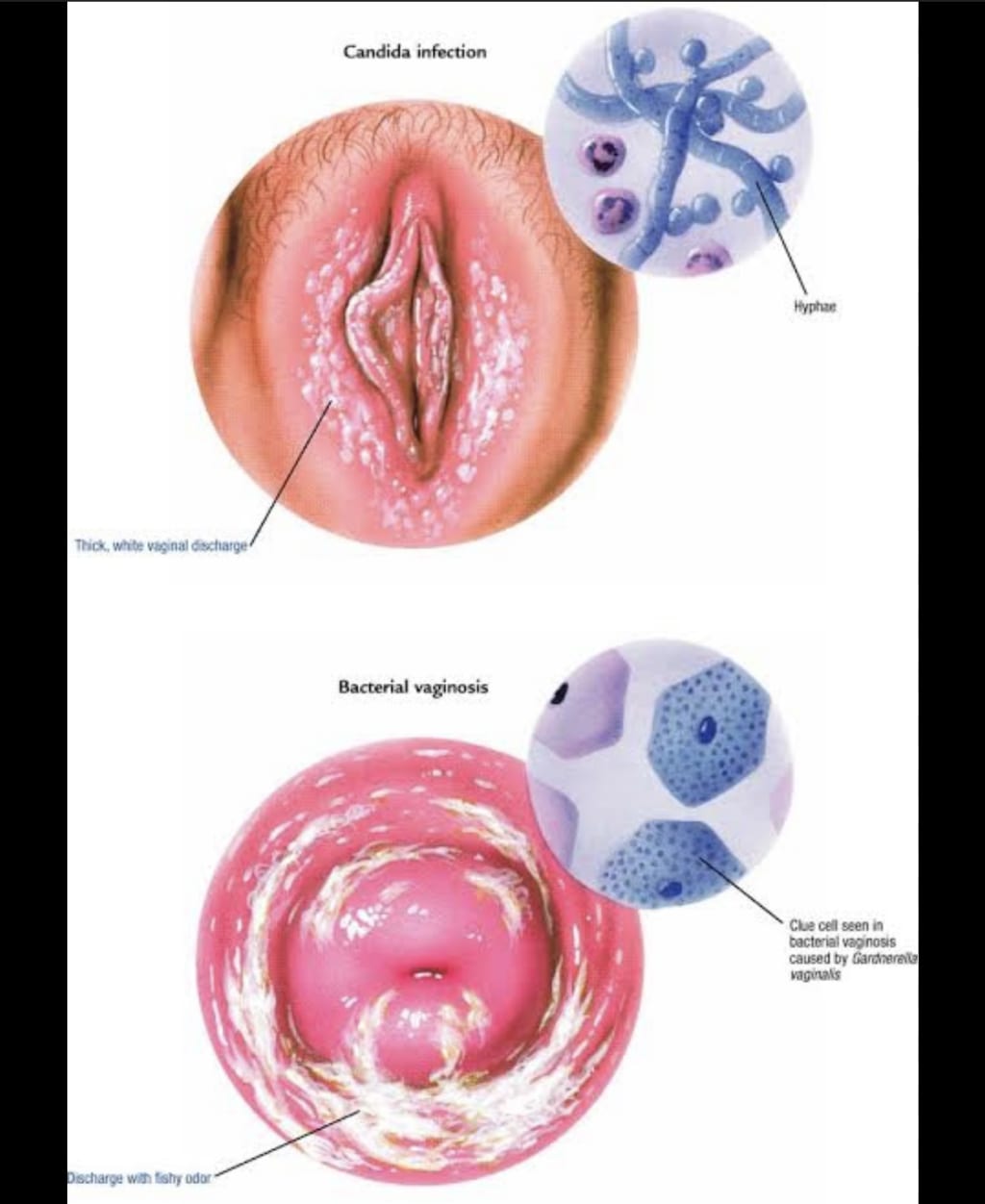
Vaginal infections, also known as vaginitis, are caused by an imbalance of the bacteria that naturally occur in the vagina.
Vaginitis is an inflammation of the vagina that can be caused by a variety of factors, including bacterial infections, yeast infections, and sexually transmitted infections.
CAUSES OF VAGINA INFECTION
Vaginal infections can be caused by a variety of factors, including bacteria, viruses, fungi, and parasites. Common causes of vagina infection include
1.Sexually transmitted infections (STIs), such as chlamydia and gonorrhea.
2.Yeast infections
3.Bacterial vaginosis, and trichomoniasis.
It is important to practice safe sex and to get tested regularly to reduce the risk of contracting an STI. Additionally, it is important to practice good hygiene and to avoid douching, as this can disrupt the natural balance of bacteria in the vagina and increase the risk of infection.
SYMPTOMS
Symptoms of vaginal infections can include
1.Itching
2. Burning pain
3.A change in the color, odor, or amount of vaginal discharge.
Treatment for vaginal infections depends on the cause and can include antibiotics, antifungal medications, or other medications.It is important to speak with a healthcare provider to determine the best course of action.
YEAST INFECTION
Yeast infections are caused by an overgrowth of the fungus Candida, which is normally found in the vagina.
SYMPTOMS
Symptoms of a yeast infection can include itching, burning, and a thick, white discharge.
Treatment for yeast infections typically involves antifungal medications, such as creams, ointments, or tablets.
If you think you may have a yeast infection, it is important to speak with your healthcare provider for an accurate diagnosis and treatment plan.
It is important to speak with your doctor to determine the best course of treatment for you.
SEXUALLY TRANSMITTED INFECTIONS (STIs)
Sexually transmitted infections, or STIs, are infections that are spread through sexual contact. They can be caused by bacteria, viruses, or parasites, and can be spread through vaginal, anal, or oral sex.
It is important to practice safe sex and get tested regularly to reduce the risk of contracting an STI.
The best course of action is to consult with a medical professional for an accurate diagnosis and treatment plan. It is important to take all necessary precautions to prevent the spread of sexually transmitted infections.
BACTERIAL VAGINOSIS
Bacterial Vaginosis is an infection caused by an imbalance of bacteria in the vagina. It is important to seek medical attention if you think you may have Bacterial Vaginosis, as it can cause discomfort and other symptoms. Your doctor can provide you with the best treatment options for your individual situation.
SYMPTOMS
Symptoms of bacterial vaginosis can include an abnormal vaginal discharge that is usually grayish-white in color, a fishy odor, and vaginal itching or burning. It is important to speak with your healthcare provider if you are experiencing any of these symptoms.
There are several treatments available, including antibiotics, antifungal medications, and probiotics. It is important to consult with your doctor to determine the best treatment for your individual needs.
HOW TO PREVENT REOCCURRENCE
To prevent reoccurrence of bacterial vaginosis, it is important to practice good hygiene, such as washing the genital area with warm water and mild soap, avoiding douching, and wearing loose-fitting clothing. Additionally, it is important to avoid having multiple sexual partners and to use condoms during sexual intercourse. Finally, it is important to speak with a healthcare provider about any medications that may be causing the reoccurrence.
TRICHOMONIASIS
Trichomoniasis is a sexually transmitted infection caused by a parasite.
SYMPTOMS
Symptoms of trichomoniasis can include itching, burning, redness, and soreness in the genital area, as well as a thin white or yellow discharge. In some cases, there may be no symptoms at all. It is important to get tested if you think you may have been exposed to the infection.
Treatment for trichomoniasis typically involves a single dose of an antibiotic, such as metronidazole or tinidazole. It is important to take the entire course of antibiotics as prescribed by your doctor. Additionally, it is important to abstain from sexual activity until you and your partner have completed treatment.
It is important to practice safe sex and get tested regularly to prevent the spread of this infection. If you think you may have been exposed to Trichomoniasis, please contact your healthcare provider for further evaluation and treatment.
About the Creator
Juliet Obakpolor
I am a registered midwife with a license to practice in Nigeria.I am passionate about helping others and providing quality care to those in need.I believe that communication is key to understanding and making a positive impact in the world.





Comments
There are no comments for this story
Be the first to respond and start the conversation.